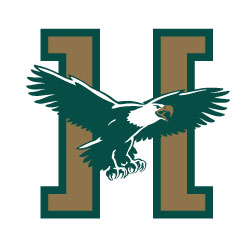
Copyright
- Home
- Student Life
- Information Technology
- Copyright
Copyright, Defined "Copyright is the ownership and control of intellectual property in original works of authorship. A copyright owner has five specific rights: to reproduce (copy) the work, to prepare derivative works based on the copyrighted work, distributing copies of the work to the public, publicly performing the work, and publicly displaying the work." ("Licensing of Instructional/Informational Technology," Adrian Arima, Gary Cary Ware & Freidenrich, March 1, 1996) Works published after March 1, 1989 may maintain a valid copyright even if they are not specifically labeled with a copyright symbol or other notification.
Copyright Infringement
Any action which violates the rights of a copyright owner may constitute copyright infringement. The digital environment includes a number of media, which are subject to copyright laws, including the Internet, email, and computer software.
The Internet
Copyright infringement via the Internet may occur in a variety of ways, including making unauthorized copies of any copyrighted material and publishing another's copyrighted materials over computer networks.
Email
Like the Internet, email may be used to publish, manipulate, or otherwise attribute original works of authorship. Such action may constitute copyright infringement.
Software Copyright Infringement
Software Copyright Infringement includes receiving and/or using unauthorized copies of software, making unauthorized copies of software for oneself or others, or attempting to modify the computer systems in any unauthorized manner.
a. Software License Agreements.
Husson has purchased licenses that permit members of its community to access and use many software packages and files that are protected and regulated by copyright law. Software license agreements are contracts in which the seller agrees to provide the program, provided that the buyer agrees to abide by the rules of the license. Most of the software used at Husson is licensed to Husson through independent software companies.
b. Ethical and Legal Use of Software.
Copyrighted software must only be used in accordance with the license and purchase agreement between Husson and independent vendors. Users do not have the right to make copies of licensed software, modify, and/or distribute such copies to anyone. Only authorized copying of files or programs or program utilization is ethical and legal.
Fair Use Doctrine
To determine whether particular uses of a copyrighted work are permissible, the courts often refer to the fair use doctrine, described in U.S.C. Title 17, section 107.
The fair use doctrine considers:
1. The purpose and character of the use, including whether such use is of a commercial nature or is for nonprofit educational purposes;
2. The nature of the copyrighted work;
3. The amount and substantiality of the portion used in relation to the copyrighted work as a whole; and
4. The effect of the use upon the potential market for or value of the copyrighted work.
Husson's policy is to adhere strictly to the letter and spirit of copyright laws and regulations. Copyright infringement may be subject to disciplinary and/or legal action. For additional discussion, see the Enforcement section of this policy.
For more information
| Name |
Phone and Email | Address |
|---|---|---|
 Information Technology
Information Technology |
207.973.1000 helpdesk@husson.edu |
Bell Hall Basement 1 College Circle Bangor, Maine 04401 |
